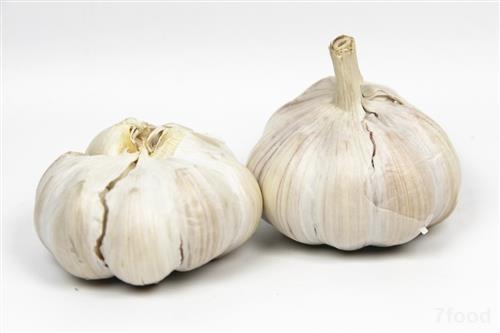According to relevant data, the incidence of stomach disease in the population exceeds 80%, and it increases at a rate of 17% per year in the unaffected population. However, people attach less importance to stomach health than the heart, liver, kidneys and other internal organs, and do not even know that they have stomach problems.
To protect stomach health, we must first prevent and treat Helicobacter pylori. Secondly, we should focus on the usual three-point treatment, seven-point support, and maintenance. What can people who have stomach problems eat?

People with stomach problems can not eat anything?
1, the staple food: Eat less flatulence beans. People who are prone to bloating should eat less or do not eat soybeans, black beans, mung beans and other ingredients because they are more difficult to digest and they are prone to gas production. Other miscellaneous beans such as kidney beans, red beans, chickpeas, etc. can be eaten, but those with poor stomachs should preferably soak beans for more than 8 hours before cooking.
2, vegetables: eat less bitter. Bitter vegetables such as bitter gourd, lettuce, bitter chrysanthemum, etc., most of them are cold, and people with spleen and stomach deficiency should eat less. What needs to be reminded is that vegetables are rich in non-softened fibers, and some contain a certain amount of anti-nutrients, such as oxalic acid, which have a certain stimulatory effect on the stomach, so people with poor stomachs should not eat raw vegetables.
3, fruit: eat less acidic. Some acidic fruits, such as lemon, bayberry, hawthorn, grape, plum, etc., are prone to cause pantothenic acid in people with chronic gastritis, and also cause certain irritations to patients with gastric ulcers, so try to eat as little or as little as possible. In addition, people with weak spleen and stomach should not eat cold pears and grapefruit.
4, meat: avoid too fat. Fat with high fat content stimulates contraction of the digestive tract. It may slow down gastric emptying and aggravate constipation. It may also accelerate gastrointestinal motility and cause diarrhea. The same is true of fried meat, which is detrimental to intestinal health.
5, seasoning: control the amount of pepper. Peppers should be used sparingly, and eating too much can damage the nerve endings' sensitivity, causing damage to the gastrointestinal mucosa over time. It is also easy for the stomach to have a burning sensation, causing problems such as gastroesophageal reflux. Some people use garlic as a gastrointestinal fungicide or anti-cancer product, but raw garlic stimulates the gastric mucosa and induces gastritis.
6, drinks: do not drink cold. Those who have a bad stomach are advised to drink less cold drinks, such as Kudingcha, otherwise it will aggravate the symptoms of spleen and stomach deficiency. Excessive cold drinking can make the stomach temperature too low, affecting gastric acid secretion and digestive enzymes.
7, snacks: eat less chocolate, mints. Chocolate contains a large amount of theobromine, which, like the effect of mint, causes the esophageal sphincter to relax, causing stomach acid to flow into the esophagus and affect the health of the stomach. Mint hurt the stomach, not only to eat less mint, but also to eat a variety of foods containing mint, such as drinking less mint tea, less chewing mints, mint chewing gum.
At the same time, people with stomach problems should avoid bogey tobacco. Alcohol can damage the gastric mucosa and cause it to become inflamed. Excessive alcohol consumption can cause gastric mucosal congestion, edema, erosion, and even gastrointestinal bleeding, liver cancer, gastric cancer, and esophageal cancer. Nicotine in tobacco stimulates and damages the gastric mucosa. Smoking is closely related to the occurrence of lung cancer and gastric cancer.
There are stomach problems, three kinds of fruit to eat less
1, hawthorn appetite susceptible to stones. Because of the high content of pectin and tannins in hawthorn, it is easy to condense into water-insoluble precipitates after contact with stomach acid, and it binds together with food residues to form stomach stones. Stones can cause stomach ulcers, stomach bleeding, and even stomach wall necrosis and stomach. perforation. But eating the hawthorn cooked will reduce the effect of tannins.
2, jujube delicious dates Zazha stomach. Fresh dates should not eat too much, otherwise it will hurt the stomach. Because of the high content of dietary fiber in jujube, a large amount of intake will stimulate the stomach and stomach, causing gastrointestinal discomfort. Most of the dietary fiber is found in jujube's jujube skin, while jujube's jujube skin is thin and hard. If the gastric mucosa just has inflammation or ulcers, it will increase the pain and discomfort.
3, kiwifruit is laxative but "heartburn." Chinese medicine believes that kiwifruit is cold and over-eaten yang that damages the spleen and stomach, causing abdominal pain, diarrhea and other symptoms. In addition, the large amount of vitamin C and pectin contained in kiwifruit will increase the burden of stomach acid and stomach, resulting in abdominal pain, pantothenic acid, heartburn and other symptoms. When the weather is cold, the symptoms will increase.
Applications: cereal drinks, condiments, cakes, bars, cookies, dishes, etc.
Features:
rich in nutrition, green and healthy
delectable mouthfeel
easy to prepared and handle
customized based on customer need
Grain Powder,grain cereals, puffed grains,cereal flakes, instant puffed grains, Breakfast Cereals
KARAK , https://www.jskarak.com